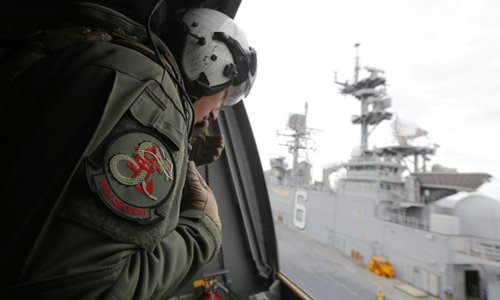
The Australian military's accusation that China sent a "spy ship" to gather intelligence on US-Australian naval exercises is nothing but an exaggeration and aims to hype the "China threat" theory, Chinese experts said on Sunday.
Instead of worrying about China's normal maritime activities, Australia and the international community should be more concerned with Japan, which sent its amphibious landing forces to participate in the exercises, a tendency of its aggressive military development which is against the country's "pure defense" policy, given its World War II history, experts said.
The experts' remarks came after Australian Broadcasting Corporation (ABC) reported on Sunday that a Chinese electronic surveillance ship is sailing toward Queensland to closely monitor the biennial joint US-Australian exercises known at Talisman Saber from just outside Australian territorial waters.
Australian Chief of Defense Joint Operations Greg Bilton said at the launch of the exercises that the Chinese ship's destination is unknown, but is assumed to be heading south near the east coast of Queensland, ABC reported.
"It is international waters, they have the right to sail there," he said.
Zhang Junshe, a senior research fellow at the People's Liberation Army Naval Military Studies Research Institute, told the Global Times that the report and Australian military's remarks are more China threat theory rhetoric, exaggerating China's normal naval activities.
"Since the Australian military acknowledges the Chinese ship has the right to sail in international waters, why would they hype the so-called 'spying' concerns?" Zhang said.
The exercises also mark the first time Japanese warships and the Japanese Amphibious Rapid Deployment Brigade, which was formed just last year, has taken part in the Talisman Saber exercises, ABC report said.
China is interested in Japan's capability and interoperability with Australia and the US, ABC quoted an anonymous military official as saying.
Zhang pointed out that Japan's military development should be the real concern of the international community.
Developing an aggressive military force such as amphibious landing forces and helicopter carriers are not allowed under Japan's pacifist Constitution and "defense-only" policy, and such development has already caused concern in countries that were invaded by Japan during World War II, Zhang said.
"Countries including Australia should be concerned about Japan's rapid development of its aggressive military power rather than making irresponsible comments about China's normal naval activities," Zhang said.













